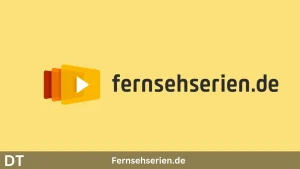introduction
Evaluating content management systems (CMS) is a crucial process for companies looking to optimize their digital presence. The CM 5-2 system provides a comprehensive evaluation framework based on five main criteria and two additional factors. This methodology allows for a detailed analysis that helps select the right CMS solution. In this article, we will examine each of the criteria and factors of the CM 5-2 system and highlight their importance in decision-making.
What is CM 5-2?
The CM 5-2 system is a structured evaluation model designed to evaluate content management systems according to specific criteria. The five main criteria and two additional factors are designed to provide a comprehensive analysis of CMS performance. According to Gartner, content management systems are the foundation for many digital strategies and their selection should be based on sound evaluations.
Quote: „Content is king, but engagement is queen, and the lady rules the house!“ – Mari Smith
The five main criteria of the CM 5-2 assessment
1. User-friendliness
- Definition: Usability refers to the ease with which users can operate the CMS. This includes the user interface, the learning curve, and support for different user roles.
- Aspects: The usability of a CMS is crucial for user acceptance and efficiency. A study by Forrester Research shows that user-friendly systems can increase productivity by up to 30%.
- Assessment: A user-friendly CMS should provide an intuitive interface that allows tasks to be completed without extensive training. An example of a user-friendly CMS is WordPress, which powers over 40% of all websites according to W3Techs.
2. Functionality
- Definition: The functionality of a CMS refers to the available functions and features that enable it to manage different content types and integrate seamlessly with other systems.
- Aspects: A powerful CMS should offer features such as content management, workflow automation and integration options. According to a survey by CMSWire, 72% of companies value the integration options of a CMS as a deciding factor in their selection.
- Rating: A good CMS should offer all the necessary features to meet the specific needs of a business. For example, Drupal offers comprehensive functionality for complex websites and large organizations.
3. Flexibility
- Definition: Flexibility refers to how well the CMS can be adapted to the specific needs of a business. This includes adaptability and extensibility.
- Aspects: A flexible CMS should be easy to adapt to individual requirements and offer the possibility to add additional features or customizations. According to a study by SitePoint, 68% of companies say that the ability to customize is an important factor in choosing a CMS.
- Rating: Flexibility is important to ensure that the CMS can keep pace with the changing needs of a business. Systems like Joomla offer extensive customization options and extensions.
4. Performance
- Definition: Performance refers to the speed, availability and scalability of the CMS. A powerful CMS should be able to handle high volumes of traffic and work efficiently with large amounts of data.
- Aspects: The performance of a CMS directly impacts the user experience and operating costs. According to Akamai, slow loading times can reduce conversion rates by up to 7%.
- Assessment: A CMS should offer stable loading times and high availability. Cloud-based CMS solutions like Shopify often offer improved performance through scalable infrastructure.
5. Security
- Definition: Security refers to the CMS’s protective measures against attacks and data leaks. A secure CMS should provide regular security updates and strong data protection measures.
- Aspects: The security of a CMS is crucial for protecting sensitive data. According to a study by Symantec, 43% of companies experienced security breaches due to vulnerabilities in their software in 2023.
- Assessment: A secure CMS should be regularly updated and implement strong security protocols. Systems like TYPO3 offer robust security features and regular updates.
The two additional factors
1. Customer support
- Definition: Customer support refers to the support provided by the CMS provider. This includes availability, response times and the quality of support.
- Aspects: Effective customer support is critical to resolving issues and ensuring smooth operations. According to a survey by Zendesk, 67% of customers are willing to pay more for better customer service.
- Review: Good customer support can make all the difference when it comes to troubleshooting issues and optimizing the system. Providers like SiteGround offer excellent customer support and technical assistance.
2. Costs
- Definition: Cost refers to the financial requirements for using the CMS. This includes license costs, implementation costs and ongoing operating costs.
- Aspects: The cost should be proportionate to the benefits and performance of the CMS. According to a study by CMSWire, 58% of companies say that cost is a decisive factor in choosing a CMS.
- Assessment: The costs of a CMS should be transparent and in line with the company’s financial capabilities. Open source systems such as WordPress offer cost-effective solutions, while customized systems often require higher investments.
Resources for CM 5-2 Assessment
- CMS Critic – Provides comprehensive reviews and comparisons of content management systems.
- Gartner – Leading market analyses and evaluations of CMS solutions.
- Forrester – Detailed reports and evaluations of various CMS systems.
- CMSWire – News and analysis on content management systems and digital experiences.
Frequently Asked Questions (FAQ)
- How can I ensure that my CMS meets the CM 5-2 criteria?
- To ensure your CMS meets the CM 5-2 criteria, you should conduct a thorough evaluation of the system. Use the above criteria as a guide and incorporate external assessments and reports to make an informed decision.
- What role does usability play in the CM 5-2 assessment?
- Ease of use is crucial because a user-friendly CMS increases user efficiency and productivity. A system that is easy to use reduces training requirements and increases user adoption.
- How important is security when choosing a CMS?
- Security is extremely important because an insecure CMS can be vulnerable to attacks and data loss. A secure CMS protects confidential information and minimizes the risk of security breaches.
- How can I evaluate the costs of a CMS?
- To evaluate the cost of a CMS, you should consider all financial aspects such as license fees, implementation costs and ongoing operating costs. Compare these costs with the features offered and the benefits of the system.
- What are the most important aspects of flexibility in a CMS?
- The flexibility of a CMS includes the ability to customize the system to meet specific business requirements and accommodate future expansion. A flexible CMS should allow for customization and expansion to meet the changing needs of a business.
Conclusion
The CM 5-2 system provides a structured and comprehensive method for evaluating content management systems. By considering the five main criteria and the two additional factors, companies can ensure they select a CMS that meets their specific needs. A well-informed evaluation, supported by external resources and expert opinion, is crucial to selecting the best solution for your company. Choosing the right CMS can have a significant impact on a company’s digital strategy and success.





